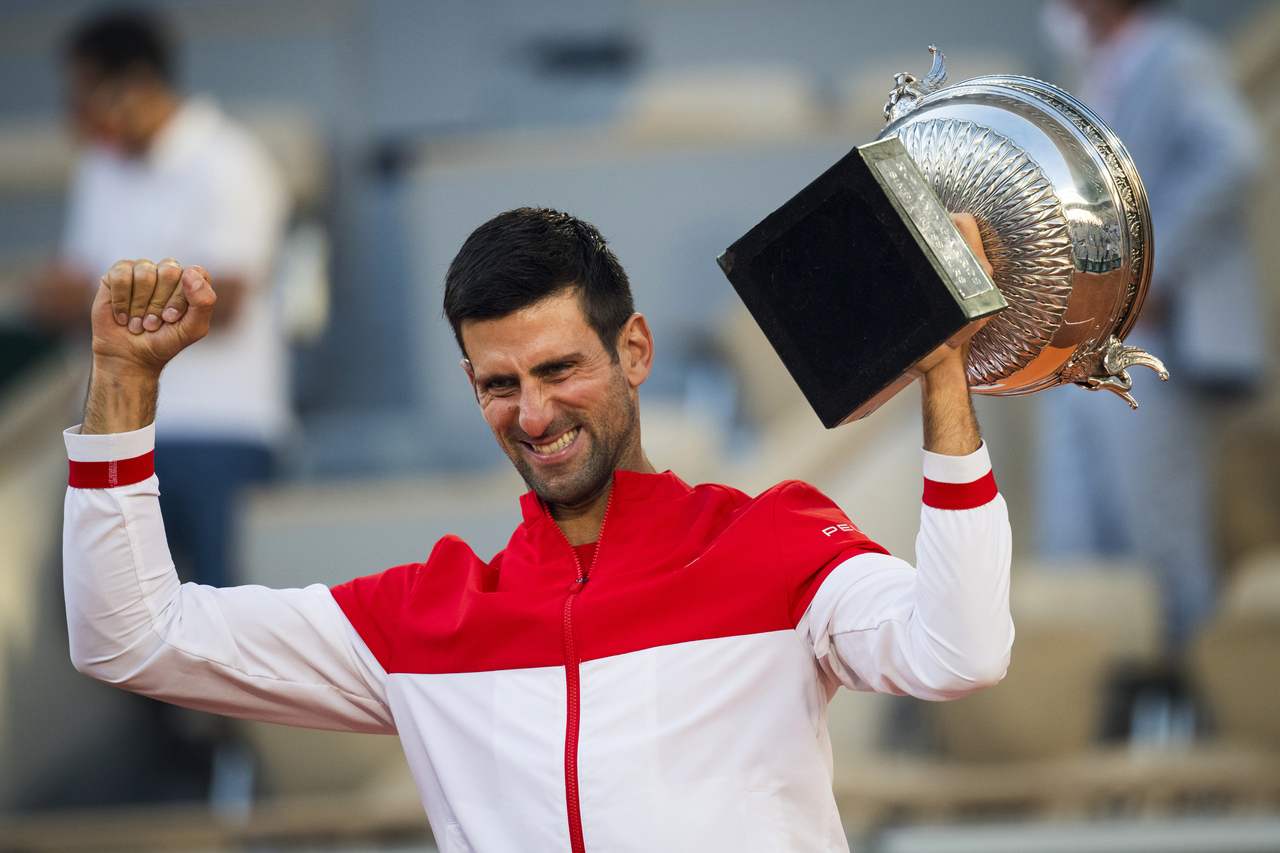Tennis: A Covid ruling opens the French Open door to Novak Djokovic
Sign up now: Get the biggest sports news in your inbox

Djokovic was deported from Australia in January because he was not vaccinated.
PHOTO: NYTIMES
Follow topic:
NEW YORK (NYTIMES) - Novak Djokovic's bet that countries would begin to relax their vaccination requirements in time for him to play major tennis tournaments has begun to pay off.
Officials in France announced on Thursday (March 3) that the country would no longer require visitors to show proof of a Covid-19 vaccine to enter indoor establishments after March 14, most likely clearing the way for Djokovic, who was the world's top-ranked tennis player until this week, to defend his championship at the French Open this spring.
A spokesman for the French Open said the tournament planned to follow government regulations in effect at the time of the tournament, which begins on May 22.
Djokovic, who confirmed this year that he had decided not to receive a Covid-19 vaccine, was deported from Australia in January after immigration officials there ruled he was a danger to society because he could energise an anti-vaccination movement in that country.
Djokovic had received an exemption to enter Australia even though he was not vaccinated because he produced a test result showing he had recently recovered from Covid-19 in time for the Australian Open.
The exemption angered many Australians, who have dealt with some of the strictest pandemic restrictions in the world during the past two years. The deportation prevented Djokovic, a nine-time Australian Open champion, from defending his title.
Instead of receiving a vaccine so he could return to top-level tennis, Djokovic doubled down on his stance against vaccine mandates. In an interview with the BBC last month, the Serb argued that the decision to be vaccinated should be a personal choice. He said he was prepared to miss the biggest tennis tournaments in the world to maintain control of his body.
"The principles of decision-making on my body are more important than any title or anything else," he said in the interview, which was his first since the controversy in Australia.
Djokovic was the only player ranked in the top 100 in Australia who had not received a Covid-19 vaccination, which experts have long said will not eradicate the virus unless most of the population receives one.
Djokovic said he understood the important role that the vaccines and mass participation in vaccination programmes played in allowing the world to move beyond Covid-19, but he remained unwilling to take one.
His biggest rivals at the top of the sport and in the race for winning the most Grand Slam men's singles titles in a career, Rafael Nadal and Roger Federer, were vaccinated as soon as they became eligible and have been outspoken about its importance.
The men's and women's professional tours and the other major governing bodies in tennis do not require players to be vaccinated and have instead chosen to adhere to the rules where their tournaments are taking place.
Djokovic played in a tournament in Dubai last month. He lost a quarter-final to Jiri Vesely of the Czech Republic. That loss, combined with the recent success of Daniil Medvedev of Russia and Djokovic's inactivity this year, caused the Serb to drop to No. 2 in the world rankings after nearly two years in the top spot.
Djokovic announced this week that he was splitting with his long-time coach, Marian Vajda.
Unless rules for entering the United States change immediately, he will miss two important tournaments during the next month - the BNP Paribas Open in Indian Wells, California, and the Miami Open. Those events are as important as any on the tennis calendar other than the four Grand Slams.
Britain, the site of Wimbledon in early summer, began relaxing its rules regarding vaccination and masking in January, and it is likely that Djokovic will be able to defend his championship there.
While Covid-19 has waned before, only to return with a variant that has scuttled hopes for a quick end to the pandemic, Prime Minister Jean Castex of France told French broadcaster TF1 that the government had decided to stop requiring proof of a vaccination for participation in most activities, especially those indoors, because "the situation is improving".
The changes, which are part of the government's gradual easing of restrictions over the past few months, would begin a little over a month before the presidential election.
New daily coronavirus cases and hospitalisations have been falling in France since early February. Mr Castex said masks and proof of full vaccination would no longer be mandatory in venues such as restaurants, bars, stores, movie theatres and museums. Masks will still be mandatory on public transportation, and people will need to show proof of full vaccination, recovery or a negative test to enter health care settings like retirement homes. Vaccine mandates for health workers will still stand, he added.

